Del Boy falling through the bar. Del and Rodney dressed up as Batman and Robin. The attempt at chandelier cleaning. The inflatable dolls. Del reluctantly hand gliding. Rodney having to pretend to be 14 after Del entered his painting in a children’s competition and it took first prize. The entire episode featuring the holiday that Rodney ‘won’ and his participation in The Groovy Gang. Tony Angelino singing ‘Cwying’. The Jolly Boys’ outing. Trigger calling Rodney ‘Dave’. Trigger saying just about anything. The fainting, followed by the celebrating when the pocket watch that had been gathering dust in their garage fetched £6.2 million for the Trotters at auction.
It’s hard to know where to start when writing about a comedy monster such as Only Fools and Horses. The situations mentioned above are just a tiny percentage of all the memorable moments that the 63 episodes have thrown up.
It’s funny. Very funny. It’s even funny when you’ve watched it for the fortieth time, which you’re bound to have done, as it’s repeated several hundred times a week without fail. It was conceived and written by John Sullivan (a prolific sitcom writer who was also responsible for hits such as Citizen Smith, Just Good Friends and Dear John – we won’t talk about Only Fools spin off The Green Green Grass) who managed to not only fill each script with sharp jokes and snappy retorts, but also successfully combined the occasional heart-wrenching moment with sensitive but hilarious comedy weaved in. Grandad’s funeral and Cassandra’s miscarriage (especially the two-hander scene in the lift) were perfect examples of just how brilliantly Sullivan achieved this.
The writing was only part of its success however. The main reason the show was so loved was the magical pairing of David Jason as Derek ‘Del Boy’, and Nicholas Lyndhurst as his younger brother Rodney, who were totally believable as the dodgy dealing siblings. Their opinions didn’t always match up, and each was more than capable of winding the other up, but throughout all the trials that life threw at the Trotter boys, the pair had obvious affection towards each other and a deep sense of family loyalty.
Their mother had died when Del Boy was a teenager and Rodney was a toddler, and soon after this their father Reg left home, leaving the older boy to take care of not only his brother, but their Grandad (Lennard Pearce) as well in the family flat. Not the most auspicious of places to spend your life, but Flat 368 of Nelson Mandela House on the Dockside Estate in Peckham quickly became the foundations for Del’s ‘business’ empire. Having to give up a lot of his freedom to bring up Rodney was a big sacrifice for the nearly adult Del, but he would never renege on the promise to look after his brother that he’d made to his mother before she passed away – and reminding Rodney of that fact was always a useful emotional blackmail tool. The revelation in a later episode that local crook Freddie Robdal was in fact Rodney’s father, and the Trotter boys were only half-brothers after all didn’t affect their strong bond.
Now the only breadwinner, Del quickly realised that he could gain the benefits of dealing on the black market, and that soon became his life; handling stolen goods and selling them on whilst also taking advantage of every get-rich-quick scheme that he came across. He went on to form the family business ‘Trotter’s Independent Traders, unregistered and under the radar of the Inland Revenue of course. In time he took on Rodney as an assistant market trader and police lookout; Rodney wasn’t keen on Del’s less than ethical business practices, and later on appointed himself the company’s ‘Financial Advisor’ (he had a GCE in maths) in order to try and curb the dishonest deals, with limited success. This was partly due to Del’s ability to make each ruse seem like a good idea, and also because of the attractive promise of more money coming in.
Generally cheerful and optimistic no matter how dire their personal situation, Del always thought big; one of his most famous catchphrases was ‘This time next year, we’ll be millionaires.’ Blessed with the gift of the gab, he was always convinced that he could sell anything to anybody. He one day professed his dream to Rodney, of standing on the penthouse balcony of his swish office skyscraper, with the company’s initials on the roof behind him in large neon letters. Rodney was quick to point out that his dream might be trying to tell him something on a slightly different level (the initials of the company….see?).
Rodney was frequently embarrassed by the shabby way the Trotters lived, and often lied to the girls he met about what he actually did for a living. When he met Cassandra, the woman who was to become his wife, he told her that his house was actually a much posher one, on a tree-lined street, and had to lurk in somebody else’s garden when she’d dropped him off one night. Rodney was always haunted by being kicked out of art college after three weeks when he was caught smoking cannabis, and feared that this mark on his record would prevent him from making anything of his life.
He met Cassandra on a computer course at night school, and their marriage gave him the impetus to move up in the world. Her father owned a printing firm and he took Rodney on in the computer department. Whilst his relationship with Cassandra wasn’t a smooth one to begin with Rodney did, for a while at least, get to live in a much nicer flat, and receive a regular, and more importantly legal, wage.
Grandad featured in the show from its beginning in 1981 until Pearce’s death in 1984. During this time, not one character, even those who weren’t related to him, ever called him by his real name, Edward. Whilst unsteady on his feet and prone to confusion (which would sometimes come in handy if he was asked a difficult question) he was not so senile that he couldn’t think up a sharp retort when needed, or get up to a bit of trickery himself, most notably when he pretended to be bed-bound in order to secure a move to a nicer, ground-floor bungalow. Grandad was generally happy to spend his time sat in his armchair, watching his two televisions simultaneously. Pearce’s sudden passing left the cast and crew bereft, and Sullivan decided to write the death of Grandad into the series, in an episode that paid a wonderful tribute to both the character and the actor.
To fill Grandad’s empty armchair in the flat, his younger brother Albert (Buster Merryfield), who Grandad had fallen out with for many years, arrived on the scene and after some persuading Del allowed him to move in. Known for his cap and his big white beard (the younger Trotters often referred to him as ‘Captain Birdseye’) he could send a room to sleep instantly with one of his many long-winded ‘During the war…’ stories. As with Grandad before him, Uncle Albert was often the brunt of Del and Rodney’s teasing, particularly in regard to the amount of ships that had sunk whilst Albert had been on board them during his time in the Merchant Navy. Buster Merryfield also died suddenly, so Sullivan again had to factor his death into the Only Fools storyline.
As the series progressed, so did the amount of regular characters featuring in the show. Describing them all would take more room than I have, but suffice to say that Trigger, Boycie, Marlene, Raquel, Damien, Cassandra, Denzil, Mickey Pearce, Mike the landlord of Del’s local, The Nag’s Head, and Sid the café owner were all familiar and welcome names, and an integral part of the show’s make-up.
The Only Fools and Horses’ audience saw the Trotters’ lives change over a long period of time; not only with their finances being transformed after actually becoming millionaires when they found a valuable pocket watch during a garage clear out, but also emotionally. Rodney and Cassandra, despite their troubles were destined to be together, and in the very last episode we saw Cassandra give birth to their baby girl Joan. Del, after countless girlfriends and failed engagements met ‘the one’ in the form of aspiring actress Raquel Turner, who later produced an heir to his empire. Damien was a very cute child to everybody except his Uncle Rodney, who couldn’t help but hear The Omen’s theme tune whenever he looked at him.
There were several long-running jokes throughout the series, with the most notable being friend Trigger’s insistence on calling Rodney ‘Dave’. This started in the very first episode, and despite being reminded of his real name on several occasions, Trigger never deviated from his confusing alternative.
On top of this was Del’s interesting vocabulary; he would frequently refer to Rodney as a plonker, wally, tart or dipstick, and ‘lovely jubbly’ and ‘cushty’ have become part of the national lexicon. He also slipped French phrases into conversations on a regular basis; thinking he spoke the language well he was always unaware of others’ confusion when he threw ‘ménage à trois’ in as a declaration of surprise, or waved somebody ‘bonjour’ as they were leaving. One of the most iconic visions of the programme was the bright yellow Reliant Regal Supervan; emblazoned with the words ‘New York – Paris – Peckham’ on the side it was always a source of humour in the show, particularly during one memorable car chase where Rodney got the car going faster than that type of vehicle was every meant to go. 63 episodes of Only Fools were made and broadcast in between September 1981 and December 2003, which were divided into seven series, and 18 Christmas specials. Six special versions were also recorded, including an education episode shown only in schools and colleges, and an appearance on the Royal Variety Show.
Despite taking a while to win over its audience, Only Fools and Horses went on to become one of Britain’s most loved sitcoms. Millions upon millions of viewers have seen Del Boy and Rodney’s exploits, and the show has won handfuls of awards. David Jason has also won accolades for his performance as the endearing rogue Del, whilst John Sullivan has been rewarded for his pin-sharp writing. The programme has been sold worldwide, and remade in several countries, whilst in the UK John Sullivan followed up its success with a prequel, Rock & Chips. This gave us an insight into the lives of Del Boy and Rodney’s parents, and the early years of the Trotter boys who we already knew and loved.
There is so much more to be said about Only Fools and Horses that I haven’t mentioned here: so many funny plotlines, memorable quotes and touching interactions between characters that to properly do it justice would involve typing until the keyboard on my computer wore out. Instead I would implore you to revisit every one of the episodes and lose yourself in the Trotter’s wheeler-dealing world.
Au contraire Rodders, au contraire - except the one where they go to America. I haven’t mentioned that before – but it was rubbish. Lovely jubbly!


 - Booklet-1-square-100x100.jpg)
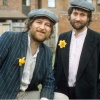
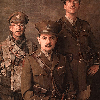
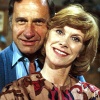
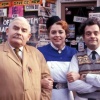
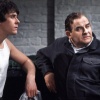
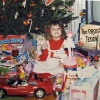
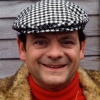
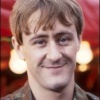
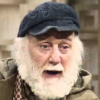
Do You Remember Only Fools and Horses?
Do You Remember Only Fools and Horses?